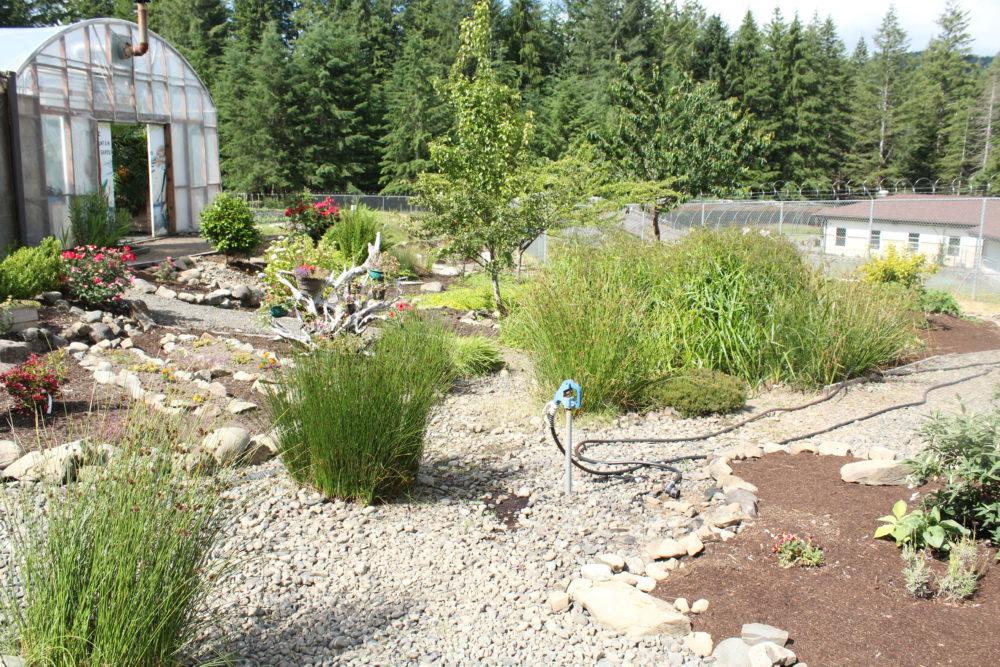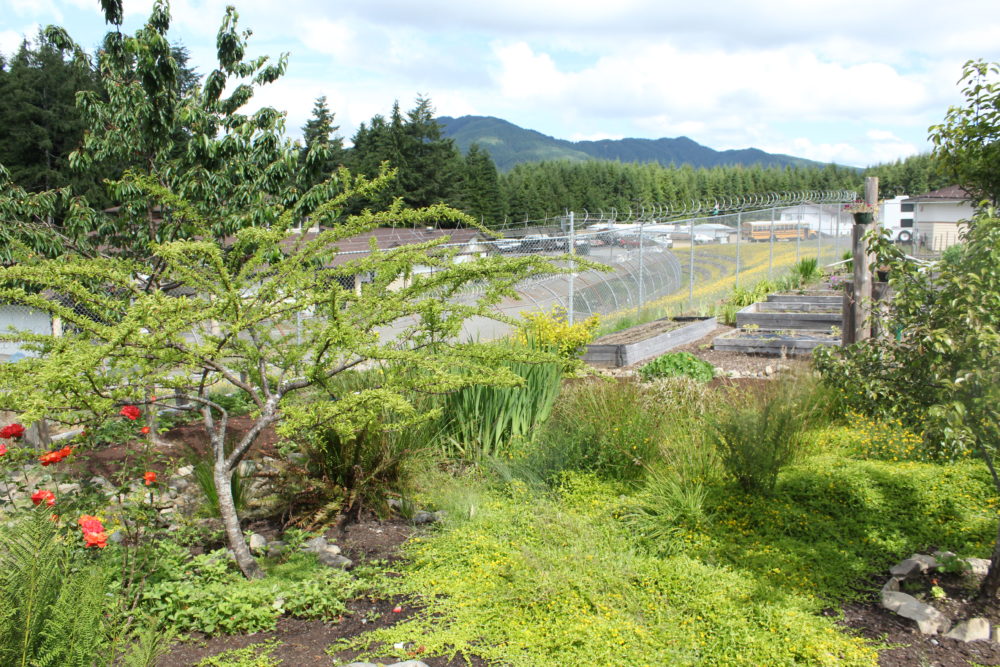Text and Photos by Bethany J. Shepler, Green Track Program Coordinator

Olympic Corrections Center (OCC)’s wastewater treatment plant is among the best in the state. The Department of Ecology (DOE) has recognized OCC’s outstanding performance, and for being 100% compliant, for 8 consecutive years. In 2018, OCC once again earned an Outstanding Performance recognition. A blog posted by DOE highlighted OCC’s accomplishments with a quote from Mike Henry, the Wastewater Treatment Plant Operator:
“We have won the award quite a few times and I think everyone is determined to win the award because they don’t want to be the first group of operators to not win it. The operators are proud of the awards. We have them hanging in the lab, except for the ones hanging in our administration building. That makes me think that our administration is as proud of our achievements as we are.”
And the administration certainly is—they proudly showed the awards to me as soon as I arrived.
Everyone at the facility is very proud of the program, and they should be. OCC’s team consistently averages 0.4 mg/L of suspended solids in their wastewater. DOE requires that the maximum limit of suspended solids in wastewater amounts to 30 mg/L. That means their wastewater contains 98.7% less than the maximum limit. Keep up the great work, OCC!
Below are pictures of the treatment plant showing the journey that OCC’s wastewater goes through before flowing into the nearby river. Take a look!
























